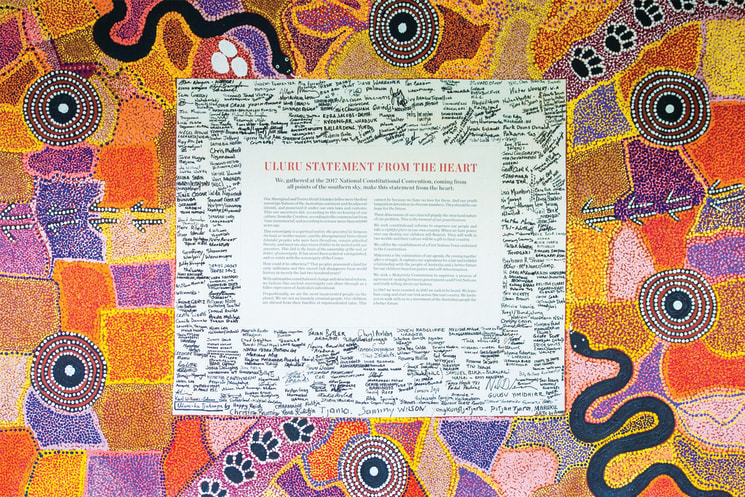
The Voice comes from the widely consultative, First Nations-led Uluru Statement from the Heart, that invites the Australian people to walk together with them to a better future.
The third in the series on the Referendum for a Voice to Parliament, written by the Bass Coast South Gippsland Reconciliation Group.
The referendum on the Voice to Parliament is part of ‘our journey’. It will bring people together and signal to the nation and the world that we are at last constitutionally recognising and respecting the unique status and position of our First Nations people as the original occupiers of the continent.
The Voice is a very modest request, when so much has been taken from them. It asks only that we listen to their advice, their knowledge of what their people need.
This request is grounded in the Uluru Statement that invites the Australian people to walk together with them to a better future, both sides benefitting from mutual respect and shared knowledge.
The Voice has the support of the major churches who understand it as social justice, and recognise their part in Stolen Generation disasters of the past.
The AFL, NRL, Rugby Australia, Cricket Australia and big business, including mining companies who have long contested traditional land rights, now also support the Voice.
Constitutional lawyers have rejected claims that the Voice will lead to challenges in the High Court if their advice is not taken.
To arguments that it will create layers of new bureaucracy, we can say that there is already a huge number of public officials engaged in Aboriginal Affairs, but without a direct and authoritative Voice from communities, they are often ineffective.
It has been said that if there had been a Voice, there would have been no Stolen Generation.
Surveys indicate that 80 per cent of First Nations people support the Voice.
Nevertheless, some high-profile First Nations opponents believe the proposal doesn’t go far enough. Only permitting advice to be given doesn’t change the power balance.
Others believe that it is not really representative in not giving a Voice to each of the hundreds of nations within the Aboriginal and Torres Strait Islander communities.
Others see it, now that it is promoted by government, as the work of government. Given their treatment by governments since colonisation, this suspicion is understandable. But it should be remembered that the Voice comes from the widely consultative, First Nations-led Uluru Statement from the Heart.
Other First Nations people doubt that their sovereignty is protected by the Voice, though the Uluru Statement makes clear that sovereignty refers to the spiritual connection between people and their land, not power and land ownership in the Western sense.
Constitutional lawyers have also given assurances that First Nations sovereignty is not at risk.
Further claims opposing the Voice suggest that the eleven First Nations Federal politicians should be enough to represent their First Nations people. But each of these MPs represents a party and a whole electorate, not just their own people.
In response to arguments that the Voice will be divisive, we believe that it will unite the nation as a big step towards reconciliation.
A successful referendum will mean that the Australian people accept the invitation in the Uluru Statement to walk together towards a reconciled future, beginning with Voice, followed by treaty and truth-telling.
The notion of special rights for First Nations people has also been raised.
All Australians have the right to make representations to Parliament, which is guaranteed by the constitution. Hundreds of lobbyists make representations to politicians in a highly unaccountable way.
The First Nations Voice will simply be a permanent mechanism for indigenous matters to be considered in a regulated and accountable way.
Every voter must take responsibility for being informed about the reasons for the referendum, and for the way you vote.
The Bass Coast South Gippsland Reconciliation Group believes that to vote YES puts you on the right side of history!





